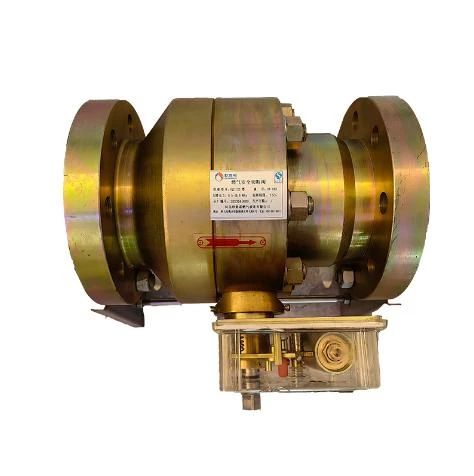
Nov . 10, 2024 02:16
Back to list
Understanding Pressure Pipes for Efficient Fluid Transport in Engineering Applications
Understanding Pressure Pipes Applications and Importance
In various industries, from water supply to oil and gas transmission, pressure pipes play a critical role in ensuring the safe and efficient movement of fluids. These specially designed pipes are engineered to withstand high pressure, making them essential components in a variety of applications. In this article, we will explore the characteristics, materials, applications, and advantages of pressure pipes.
Characteristics of Pressure Pipes
Pressure pipes are distinct from standard pipes primarily due to their ability to handle elevated internal pressures. The key characteristics that define pressure pipes include their strength, durability, and resistance to various environmental factors. Typically, these pipes have thicker walls, which enable them to endure the forces exerted by the contents flowing within them. Additionally, they are tested rigorously to meet specific pressure ratings, ensuring they can handle the intended pressure levels without risk of failure.
Materials Used in Pressure Pipes
Pressure pipes are manufactured from a variety of materials, each offering unique advantages suited to specific applications. Common materials include
1. Steel Often used in high-pressure applications, steel pipes offer excellent strength and rigidity. They are commonly used in oil and gas pipelines, as well as in water treatment facilities.
2. PVC (Polyvinyl Chloride) This lightweight and cost-effective material is used for lower pressure applications such as irrigation and drainage systems. PVC pipes are resistant to corrosion and chemical damage, making them suitable for various environments.
3. HDPE (High-Density Polyethylene) Known for its flexibility and resistance to impact, HDPE has emerged as a popular choice for both above-ground and underground installations. It is extensively used in water supply systems and natural gas distribution networks.
4. Copper Often utilized in plumbing and HVAC systems, copper pipes are reliable and possess antimicrobial properties. They are capable of handling moderately high pressures and are particularly effective for transporting potable water.
Each of these materials brings distinct properties to the table, allowing engineers to choose the most appropriate type depending on the specific requirements of the project.
Applications of Pressure Pipes
The applications of pressure pipes are vast and diverse, spanning numerous industries. Some of the most notable applications include
pressure pipe

1. Water Distribution Municipal water supply systems rely heavily on pressure pipes to deliver clean drinking water to homes and businesses. These pipes are engineered to maintain high pressure, ensuring that water reaches its destination efficiently.
2. Oil and Gas In the energy sector, pressure pipes are crucial for transporting crude oil, natural gas, and other hydrocarbons from extraction points to refineries and distribution centers. The ability to handle high pressures and corrosive materials makes specialized steel and composite pressure pipes indispensable in this industry.
3. Industrial Processes Manufacturing and processing plants use pressure pipes to transport fluids such as chemicals, steam, and other substances required in production processes. The design and material of these pipes ensure the safe passage of hazardous or volatile materials.
4. HVAC Systems In heating, ventilation, and air conditioning systems, pressure pipes play a vital role in distributing hot or cold water and steam throughout a building. The efficiency of these systems relies on the integrity and performance of the pressure pipes used.
Advantages of Pressure Pipes
The advantages of using pressure pipes in various applications are numerous
- Safety Pressure pipes are designed to meet stringent safety standards, minimizing the risk of leaks and ruptures that could lead to catastrophic failures.
- Efficiency High-pressure capabilities enable the transportation of fluids over long distances without significant pressure loss, enhancing the overall efficiency of fluid distribution systems.
- Longevity Properly installed and maintained pressure pipes can last for decades, reducing the need for frequent replacements and repairs.
- Versatility With a wide range of materials and designs available, pressure pipes can be tailored to meet the specific demands of different industries and applications.
Conclusion
In conclusion, pressure pipes serve an essential role in modern infrastructure and industrial processes. Their unique characteristics, reliable materials, and diverse applications underscore their importance in safely transporting fluids across various sectors. As industries continue to evolve and expand, pressure pipe technology will undoubtedly play a pivotal role in meeting the growing demands of fluid transportation and management. Understanding the significance of these pipes not only highlights their value but also emphasizes the need for ongoing research and development in this critical field.
Latest news
-
Safety Valve Spring-Loaded Design Overpressure ProtectionNewsJul.25,2025
-
Precision Voltage Regulator AC5 Accuracy Grade PerformanceNewsJul.25,2025
-
Natural Gas Pressure Regulating Skid Industrial Pipeline ApplicationsNewsJul.25,2025
-
Natural Gas Filter Stainless Steel Mesh Element DesignNewsJul.25,2025
-
Gas Pressure Regulator Valve Direct-Acting Spring-Loaded DesignNewsJul.25,2025
-
Decompression Equipment Multi-Stage Heat Exchange System DesignNewsJul.25,2025

